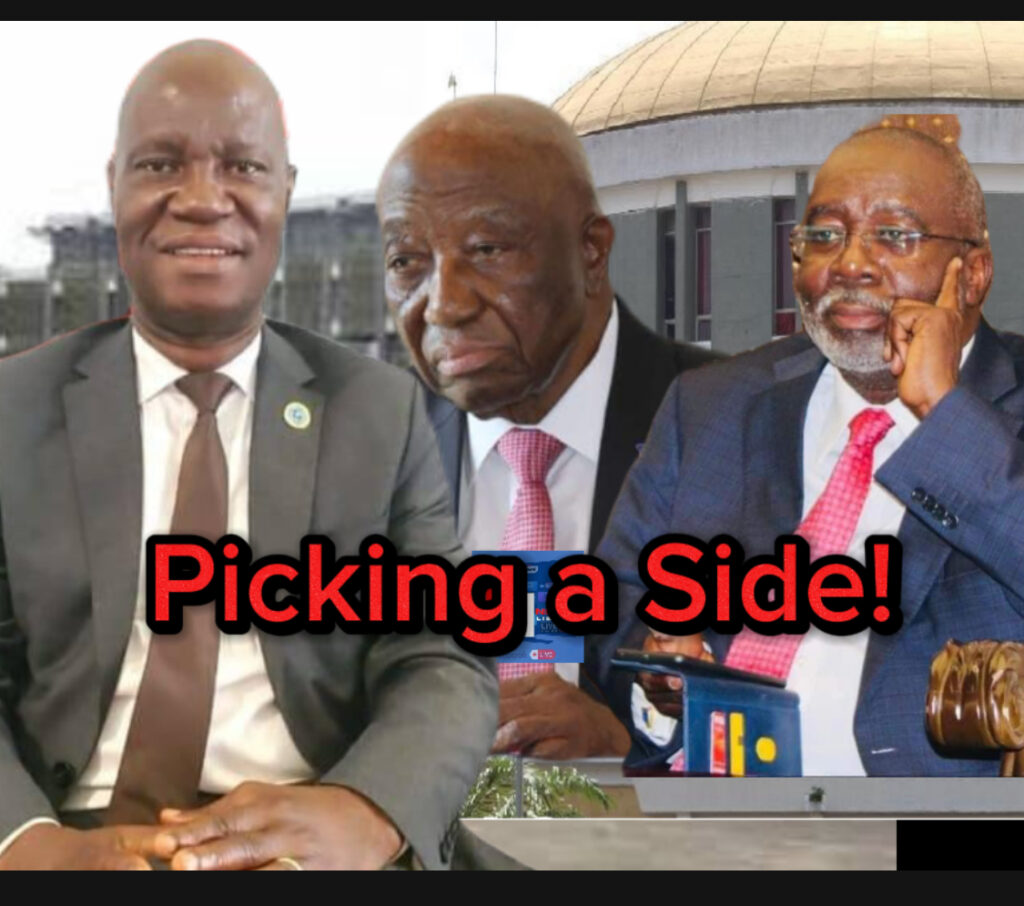President Joseph Boakai’s recent communication to the House’s Chief Clerk, detailing the delay in submitting the Fiscal Year 2025 National Budget, has become a significant development, hinting at the predictions made by DN News Liberia in a recent analysis.
The President’s decision, influenced by ongoing consultations amid an internal conflict within the House of Representatives, mirrors the situation DN News foresaw—a political impasse that could necessitate presidential intervention, similar to what occurred during the administration of former President Ellen Johnson Sirleaf.
The current grief in the House of Representatives, exacerbated by the Supreme Court’s refusal to issue a Writ of Prohibition in favor of Speaker Koffa, has created an unprecedented legislative deadlock. The Speaker’s petition aimed to block hearings initiated by a majority of House members without his oversight, citing potential threats to the rule of law. However, the Supreme Court’s stance has only deepened the discord, leaving President Boakai with limited options.
DN News Liberia, in its analysis dated October 20, 2024, predicted that this legislative standoff could force President Boakai into a position where he must intervene, despite initially appearing detached from the conflict. The historical parallel drawn with the Tyler era under President Sirleaf was insightful. Then, as now, a protracted impasse disrupted legislative proceedings and hampered the government’s functionality, ultimately compelling the President to support the faction with the majority to restore order.
As we observe this current predicament, President Boakai’s letter could be interpreted as a subtle admission that he may have to step in sooner rather than later. The delay in the budget submission, originally slated for October 31 and then postponed to November 8, now has no definite timeline due to the ongoing power struggle. This delay not only threatens the passage of the national budget but also undermines the government’s ability to address pressing financial and legislative matters.
The stakes are high. The national budget is a critical document that outlines the government’s spending and development priorities. Any prolonged delay could have severe consequences for the country’s economic stability, affecting everything from public sector salaries to critical infrastructure projects.
Thus, as DN News predicted, the President might find himself in a position where he has to make a difficult choice: either continue to respect the separation of powers and risk a prolonged legislative gridlock or intervene in the leadership crisis to ensure the smooth functioning of the government.
In this light, President Boakai’s call for the House of Representatives to resolve their differences “in the interest of all Liberians” seems to be a precursor to a more direct involvement. The President’s emphasis on consulting legal experts to understand the Supreme Court’s decision indicates a careful approach, but it also signals that he is preparing for the possibility of having to mediate or take a more decisive stance.
The unfolding scenario validates the foresight of DN News’ analysis, highlighting the potential need for presidential intervention to prevent further disruption. If the impasse persists, the President may indeed be compelled to side with the majority faction, potentially at the expense of Speaker Koffa’s leadership, to ensure the passage of the national budget and maintain government stability.
In conclusion, while President Boakai’s letter signals a commitment to upholding democratic processes and the separation of powers, it also reflects the harsh reality predicted by DN News: that the Executive Branch may eventually need to play a role in resolving this crisis to safeguard the nation’s legislative and financial stability. The coming weeks will reveal whether this scenario will materialize, but one thing is clear—President Boakai’s administration cannot afford to let this impasse drag on at the expense of the Liberian people’s welfare and the country’s governance.

